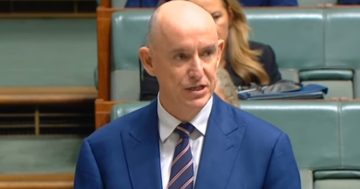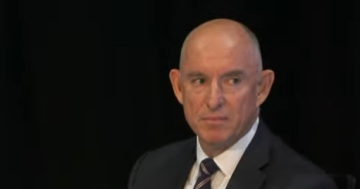By Kath Hall
Last night it was claimed in a joint ABC Four Corners /Fairfax Media investigation that the Australian Companies and Securities Commission (ASIC) missed an important opportunity in not investigating key directors of Securency and Note Printing Australia (NPA) for breaches of directors’ duties under the Corporations Act.
It is claimed that NPA board members knew of visits by company employees to Iraq in 1998 when attempts were made to secure a lucrative contract to provide the Iraqi government with new currency. The program claimed this illegal Iraq trip was the beginning of “an inglorious reign by the directors that the RBA had hand-picked to be on the boards of Securency and NPA”.
So why is attention only now turning to the role of the directors of NPA and Securency in these corruption scandals? Over the last few years considerable regulatory effort has been put into investigating the criminal liability of the two companies and their managers under the bribery provisions of the Criminal Code 1995 (Cth).
In 2011 the AFP charged Securency and NPA with conspiracy to bribe foreign public officials in the context of allegations that inflated commissions worth millions of dollars were paid to foreign agents and officials in Malaysia, Vietnam and Indonesia to secure banknote contracts.
In 2011 – 2012, the AFP began committal proceedings against eight former managers of Securency and NPA under the bribery provisions of the Criminal Code. Later, in August 2012, the former Chief Financial Officer of Securency pleaded guilty to false accounting charges and was sentenced to imprisonment for six months, suspended for two years.
Yet in all this time it appears that no sustained investigation has been conducted into the responsibility of the board members of Securency and NPA for the companies’ business activities. This is despite the fact that in 2012 the AFP referred significant evidence of “possible illegality” by four former directors to Australia’s corporate regulator the Australian Companies and Securities Commission (ASIC).
(Transcripts of RBA Governor Glenn Stevens’ testimony at the House of Representatives Standing Committee on Economics that the Reserve Bank had no knowledge of the allegations until they were aired in the media are on the ABC Four Corners website.)
The directors were former Chairman of NPA and Securency Graeme Thompson; former NPA director Frank Campbell; former Securency and NPA director Les Austin; and former Managing Director of NPA and Securency director Chris Ogilvy.
ASIC has declined to investigate.
Read ASIC’s statement on Securency and Note Printing Australia here.
Watch ASIC Commissioner Greg Tanzer’s statement here.
Under the Corporations Act, directors can face civil or criminal liability if they fail to act with care and diligence in the exercise of their powers, or in the best interests of the company.
The penalties for breaching these duties include disqualification, fines and even imprisonment. When asked about its decision not to investigate the directors, ASIC declined to comment, stating only that the AFP was the “prime agency” to deal with bribery not ASIC.
Yet clearly ASIC is the body responsible for investigating breaches of directors’ duties under the Corporations Act. Indeed, in two recent cases concluded by ASIC on the liability of former directors of AWB for the payment of kickbacks to the Iraqi regime, the Supreme Court of Victoria emphasised that directors have an important duty to monitor and ask questions in relation to transactions and business activities in high risk jurisdictions known for corruption.
A recent report published by the Parliamentary Joint Committee on the Australian Commission for Law Enforcement Integrity in June 2013 concluded that key questions remain about the management of corruption, integrity frameworks and corporate governance within Securency and NPA.
As indicated in the report, many of these questions concern the monitoring and governance activities of the companies’ boards. For example, Frank Campbell, one of the directors referred to ASIC for investigation said in evidence to the Committee that although Securency policies around the use of agents were good, the problem was that management did not implement these policies properly and the board did not follow up this omission. This led to serious gaps in Securency’s governance framework around the conduct of agents, he claimed.
Similarly, whistleblower Brian Hood told the Committee that when he arrived at NPA in 2004 there were no risk management practices in place to deal with corruption. Hood claimed that the culture within NPA at the time was one of “sell, sell, sell and get whatever business we possibly get”.
He told the committee that “for a business that was making banknotes and Australia’s passports, there was not a culture of compliance, of due diligence, of rigorously following policies and procedures.”
Similarly RBA Governor Glenn Stevens acknowledged in evidence to the Committee that governance arrangements in both NPA and Securency were not strong enough to detect and prevent payments to agents. Deputy Governor Ric Battellino also stated that it was a “mistake” for the RBA to assume that NPA and Securency had a strong corporate culture.
Such issues of governance and corporate culture are clearly the responsibility of the board. As has been demonstrated in a number of high profile cases taken by ASIC over recent years, including the Centro and James Hardie decisions, directors are responsible for monitoring the activities of management and making sure that systems exist to manage risk and ensure regulatory compliance.
Why ASIC didn’t follow through with investigating these cases, given the apparent strength of the evidence and the importance of the case to Australia’s international reputation, is unclear.
What is clear however is that ASIC missed an important opportunity to stay on the front foot with these issues. Instead, it is now in the spotlight facing questions on why it failed to act.
Kath Hall is affiliated with the ANU College of Law and the Edmond J Safra Center for Ethics at Harvard University.
This article was originally published at The Conversation.
Read the original article.



















